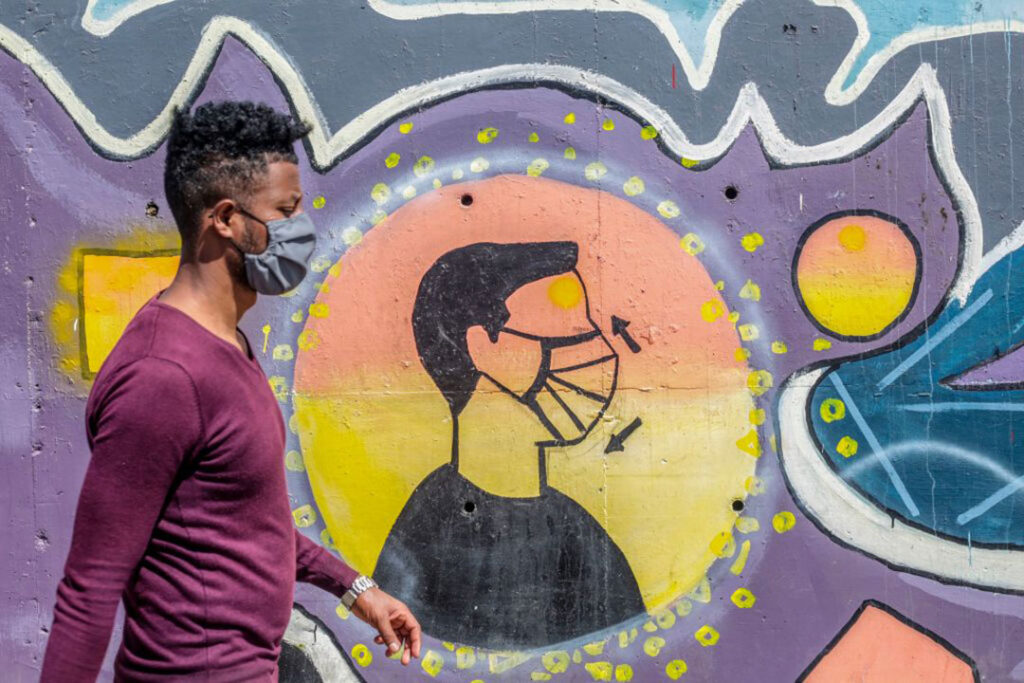ADF STAFF
When Tedros Adhanom Ghebreyesus addressed the World Health Organization’s annual assembly in September, the director-general issued a stark warning.
“We might be tired of COVID-19,” he said. “But it is not tired of us.”
He spoke from quarantine after being in contact with someone who tested positive.
“It preys on those in weaker health, but it preys on other weaknesses too: inequality, division, denial, wishful thinking and willful ignorance,” he said. “We cannot negotiate with it, nor close our eyes and hope it goes away.”
In the same spirit as Tedros’ call for renewed commitment, action and coordination, the Pandemic Action Network (PAN) launched the Africa Mask Week initiative November 23-30 in partnership with the Africa Centres for Disease Control and Prevention (Africa CDC) and more than 55 organizations.
The week featured online events by organizations, corporations and individuals using the hashtag #AfricaMaskWeek. The goal is to build a continentwide movement for wearing masks as an essential way to prevent the spread of COVID-19.
Autumn Lerner, PAN director of communications, told ADF the message also is one of resilience.
“The finer point is keep on wearing a mask, doing it to protect your community and protect your family,” she said. “It’s incredibly important. It comes at an important time, as we’ve seen an uptick in cases on the continent.”
Through December 1, 52,231 people have died, and 2,184,209 people have been infected with COVID-19 in Africa, according to the Africa CDC.
“It’s clear the second wave is here on the continent,” Africa CDC Director John Nkengasong said on November 26.
In August, PAN led more than 40 organizations in observing World Mask Week, which saw 117 countries participate.
“World Mask Week really came out of a time of fatigue,” Lerner said. “We were seeing all these little campaigns, and people were getting tired and would stop practicing what works.
“Similarly in Africa, we’re seeing in the data that people understand the efficacy of wearing masks, that there’s pandemic fatigue, there’s preparedness fatigue, particularly when other issues feel more acute.”
During Africa Mask Week the focus was on raising awareness and encouraging vigilance. Afterward, the emphasis turned to work on the ground engaging with communities, directly communicating risk and distributing critical supplies.
On November 24, one of the world’s biggest producers of masks and other personal protection equipment, BYD Care, announced a donation of 16 million masks in honor of Africa Mask Week.
In Lerner’s view, the reach and impact of the initiative already has proven successful.
“We know there are limits to what can be done on social media, particularly on the continent, where not everybody is on Twitter or Facebook or has access,” she said. “But what we saw through our network of partners is that they really took the campaign offline.”
Lerner said people embraced the Mask Week concept and made it their own.
“We were seeing a lot of engagement offline in terms of images, videos, community events, people going door to door doing the community-based risk communications work offline.
“We’re still gathering data and results, but that was a surprise and an important one.”

